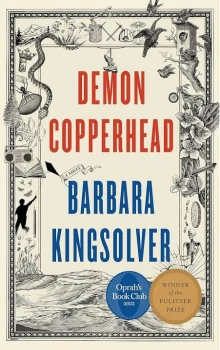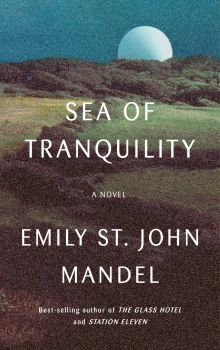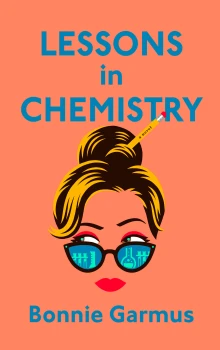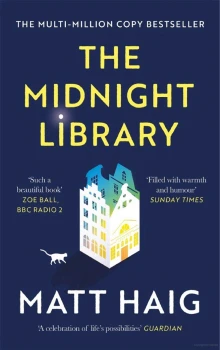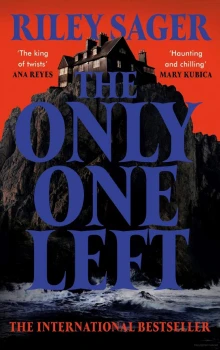So what does it mean, Bird thinks, as he lies in his bunk that night. It’s well after midnight and below him his father snores once, then turns to one side, and is still. Outside, the city is quiet, except for an occasional siren wailing its way through the dark. We promise to watch over each other.
Bird tiptoes into the living room, pushes the edge of the curtain aside, slips behind it, and looks out. All he sees are the hulking forms of buildings, the far-off specks of streetlights. The flat dark band of the street. Newly blackened, but somewhere beneath it, a painted heart still blooms. So risky, he thinks, and what was the point? When a few hours later all trace of it was gone.
But the truth is: it isn’t gone. He can’t see that bare stretch of ground without thinking of it, the bright splotch flashing into his mind, sharp as a wildcat’s snarl.
Hadn’t they been afraid?
He tries to imagine what it had felt like, to be that painter. Tiptoeing into the street. Breath dragon-hot beneath a mask, heartbeat a deafening roar. Slapping stencil to pavement with shaking hands, spraying a sizzling cloud of red. And then running, lungs aflame with fear and fumes, finding a small sheltered corner to hide. Red paint like smears of blood on his hands.
And then it floods him. Rushing in as if someone has unstopped a plug.
A game they played, he and his mother, when he was very small. Before school, before he had any other world but her. His favorite game, one he’d begged her to play. Their special game, played only when his father was at work, kept as a secret between just them.
You be the monster, mama. I’ll hide, and you be the monster.
She’d taped sheets of paper to the walls and Bird drew cat after cat: with crayons, half-dried markers, pencil stubs. Simple cats, scrawls with ears, but still. Cats. Cats, all over his room. And then, when he tired of drawing, came the second part of the game. Inside his closet was a crawl space his parents had discovered when they’d fixed up the house. Too small, under the eaves, for anything practical, but his mother had kept it. For him. A perfect boy-sized cubby she’d furnished with a sliding panel, a pillow and a blanket and a flashlight. A dragon’s cave. A bandit’s lair. And sometimes, the cabinet in which the boy hid.
He would crawl inside and slide the panel shut and yawn loudly, then flop down and begin to snore. From outside would come a growl that peppered goose bumps up and down his arms. A series of snarling meows. Inside, Bird pulled the blanket over his head and shivered deliciously. After a few minutes it grew quiet, and he would crawl from the hot cubby back out into the closet and then the light of the room, and there, on the carpet: his mother on her back, arms curled to her chest. Deadly still. The mouth of every cat he’d drawn smeared with red.
He would run to her then and throw himself on her chest and she would catch him in her arms, warm and strong, and tickle him and laugh. Always, a moment of terror at seeing her there, and a hot rush of relief when she came back to life. Over and over they played it, this game, his mother indulging him again and again. So long ago that he’d forgotten. Kindergarten, new friends, new games arrived and swept it away. And then, after she’d gone, he’d packed that memory up, along with everything else he could, and left it behind in the house they’d once shared. Where maybe—just maybe, though he doesn’t even dare to think the words—perhaps he might find her again.
Something he’s never told anyone, even Sadie: he’s been there many times, over the years. It is just a few blocks from his new school, and though he’s supposed to come directly home, sometimes he detours, just a little, so he can walk past the old house. Just to see it. It is the only time he ever deviates from the path. Construction, he imagines telling his father, the main road was closed, I had to go around. Or: The police were detouring people—I dunno why. His father would never argue with that; he’s always reminding Bird to stay away from trouble, to avoid the police.
But his father never even asks. He is so certain Bird will always follow the rules, so confident in Bird’s unquestioning obedience, and on those days—standing on the sidewalk, looking up at the house where they no longer live, at its shaded-over windows like closed eyes—Bird resents it, this assumption that there could be nothing off his prescribed path that he wants or misses or needs.
No one has moved into the house in the past three years. His father hasn’t sold it—he can’t, without his mother’s signature, too—and no one seems to want to rent it, once they learn who’d lived there before. Every time Bird visits, it is just the same, windows obscured by blinds, tall back gate always shut tight. None of the houses in this neighborhood have front yards; the houses come right up to the sidewalk like pushy neighbors, elbowing their way in. A scraggly strip of grass runs between sidewalk and street in a threadbare ribbon, and this is the only thing that changes from visit to visit: first overgrown and tufty, then knee high and gone to seed, then buried under a bank of uncleared snow. One spring he visited and found it bristling with daffodils: he had forgotten his mother had planted them there, and their cheerful yellow—her favorite color—pained him so much that he did not come back again for a whole month, until the flowers had shriveled, leaving nothing but splayed stems and wilting leaves.
What he knows from this: the house is still sitting empty. The perfect place to hide.
The next day, after school, instead of heading home, he follows the road along the curve of the river, back toward their old house. As he walks, a smattering of memories flare at each step, small bright stones lighting a path through the forest. There is the huge gray-brown sycamore, like an enormous elephant’s foot, which even together their arms could not encircle. There is the lopsided white house, two centuries old and all corners and additions: the mish-mosh house, he’d called it; his mother had called it the House of the Thirty-Seven Gables. There is the monastery behind its high sandstone wall, as impenetrable and imperturbable as ever. Monks live there, she’d told him, and when he’d asked what’s a monk, she’d answered: a person who wants to escape the world. All the landmarks of his childhood coming back, patiently pointing the way. For a moment he pauses before the great hollow of an old stump, disoriented, until he realizes: the big maple he remembers has been cut down. In the fall it had showered red leaves over the sidewalk, the smallest as big as his face. His mother had plucked one, poked two eyeholes, let him wear it as a mask. One for her, too. A pair of wood spirits, roaming the city. The tree must have been decaying from within all that time, rotting and crumbling like sponge. The tragedy of this nearly crushes him, until he peers inside and sees small green shoots rising deep within the ring of stubborn wood.
On their old street, each house is a different drab shade: tan, dirty cream, the washed-out gray of tattered laundry: as if all the color has leached away since his childhood. Slope shouldered, listing slightly to one side, they resemble old ladies, their clothing grown shabby and loose. There are garbage cans stowed behind fences, here and there a soggy newspaper, still in its plastic sheath, on the sidewalk—but it’s quiet. And then there it is again: their house, just as it has always been. Dusty green, like the underside of a leaf. Wooden steps leading to the porch, gracefully sagging, edges rounded with age. The front door, once cherry red, faded to the soft brown of aged brick.
If his father never sold the house, Bird reasons, then it’s still theirs. Which means it isn’t trespassing. Not, technically, breaking the rules. Still, he glances over his shoulder, scanning the street, as he picks his way through the weeds toward the gate and the backyard. The windows of the other houses glaring at his back.
After his mother left, some of their neighbors had shied away from them. Before, they’d waved, said hello, maybe told Bird how tall he was getting, or commented on the weather. After: tight lips, the merest head nods. Darting inside quickly as if they’d forgotten something, or left the stove on. Once, in Harvard Square, Bird and his father had run into Sarah, who lived two houses down, who had sometimes brought them rhubarb muffins and borrowed Margaret’s pruning shears. She’d crossed the street as they approached, casually but quickly, as if there were a bus she needed to catch. The next time they saw her, on their own street, hauling in garbage cans after the truck had gone by, she didn’t meet their eyes.
Worse than the neighbors who ignored them: the ones who began to check on them. To see if you needed anything, one would say. Just dropping by, to see how you were doing. To see how you were holding up. What was it they were supposed to be holding up, Bird wondered, though eventually he realized it was themselves. It did feel that way in those early days, on the mornings when he’d learned to eat his cereal dry, because the milk in the fridge always seemed to have curdled: like they were puppets and the strings holding them up had gone slack. His mother had done all those things, but she was gone, and they would have to learn to survive on their own: a near impossible thing, those first weeks.
When the smoke alarm went off, the fire department arrived and his father had to explain: no, everything was fine, just the pancakes left in the pan too long. Yes, he knew the stove should never be unattended; Bird had called him into the other room; no, Bird was perfectly safe, everything was under control. Another afternoon, Bird fell off his bike at the corner and skinned both knees and ran back home, screaming, blood trickling down both shins: he was sitting on the closed toilet, sniffling, his father dabbing at him with a damp paper towel—it’s okay, Bird, see? just a scrape, not as bad as it seems—when the police arrived. A neighbor had called. The little boy, crying and alone. The bike abandoned, front wheel still spinning. Just wanted to make sure he wasn’t unattended. You know, with his mother gone. Just wanted to be sure someone was watching.
Someone was always watching, it seemed: when Bird went out without a hat and stood shivering at the bus stop; when Bird forgot his lunch and his teacher asked him if his father was giving him enough to eat. There was always someone watching. There was always someone wanting to check.
It’s probably nothing, but—
I just figured I should say something in case—
Of course I’m sure everything is fine, but—
Posters were starting to appear all around town then, all over the city. All over the country. United neighborhoods are peaceful neighborhoods. We watch out for each other. Years later, Bird would see Sadie pull a Sharpie from her jeans pocket and scribble over out for. Their neighbor across the street, who had never liked them, who said their yard was overgrown and their house needed painting and their car was parked too close to hers, took particular joy in calling in everything. When his father burned his hand on the cast-iron skillet and dropped it on the floor with a loud clang and a shouted oath, a police officer arrived fifteen minutes later. Report of domestic disturbance, they’d said. Was he in the habit of using profanity in front of his son? Would he say he had a temper? And to Bird, privately, out of his father’s hearing: Was he ever afraid of his father, had his father ever hit him, did he feel safe at home?
Every few days, menacing items would appear in their mailbox, or on their front steps: broken glass; bags of garbage; once, a dead rat. All-caps notes that his father tore down before Bird could read them. It was not long after that, he realizes, that his father had transferred to his new job, that he’d switched Bird to his new school, that they’d moved to the dorm. For the first time, he considers what might have appeared at his father’s work, outside his office, on the desks in his classrooms. What his bosses might have said, or not said, about it all.
Good news, his father had said, the university has agreed to let us use an apartment in one of the dorms.
His new job paid hourly, barely enough for food and clothes, not enough for Cambridge rent. But through favors and kindnesses, he’d managed to negotiate a safe place for them to live. At the top of a tower, buffered by a courtyard, a key-swipe, an elevator. A refuge from prying eyes.
As Bird pushes the back gate open, there’s a sudden scurrying, a blur of brown and a flash of white: a rabbit, startled while browsing in the overgrown lawn. It darts to a gap under the fence and disappears, and Bird picks his way through the grass. The weeds are waist high after three years of neglect and nearly cover the path; here and there a branch, grown leggy and bare, plucks at his sleeve like a beggar asking for alms. A story comes back to him: a castle, all covered in a rose briar. So thick nothing could be seen of it, not even the flag on the roof. All the princes struggling to fight their way through. When the rightful prince came, after a hundred years, the hedges made a path for him. Once he had loved that story, once his mother had told it to him and he had believed it, every word.
As he looks around, memories hover close before alighting on his shoulders like dragonflies. They’d had flowers here, before: lavender, and honeysuckle, and huge purple puffballs, his father’s favorites. White roses the size of his fist that fat golden bees wriggled into. Vines with purple star-shaped blooms. Here there had been vegetables, curling squash with hairy leaves and sprawling tomatoes. His mother’s green rubber boots, treads caked with mud. His had been orange. Once he’d been stung and his mother had pulled his wrist to her mouth, sucked the stinger from his skin.
He ventures farther, parting the weeds. There is the pole where beans once twined themselves up a teepee of string. A cool green hideaway, once upon a time. His father had had one as a child and then his mother had grown one for him. Now the strings are bare, gray from the weather, some slack and some frayed. At his feet, a tangle of dry, withered vines.
Somewhere here, he remembers, somewhere in this garden, there is a key. He is sure of it. Near the back steps, perhaps, or under the porch. A rock with a key buried under it.
They’d been outside. How old had he been? Four? Five? His father at work. His mother tending the garden: pulling weeds, pruning shrubs, tying branches—swollen with ripening fruit—to their stakes. He’d shut the back door and it wouldn’t open again and he’d burst into tears. Certain they were trapped outside forever. It’s all right, she’d said. Listen, I’ll tell you a story. She told him stories often, while she worked, as he dug in the dirt, collected twigs, lay in the grass at her feet. Once upon a time, there was a witch with a magical garden. Once upon a time, there was a young man who understood the language of animals. Once upon a time, there were nine suns in the sky, and it was so hot nothing could grow on the earth.
This time, as she wiped the smudge of dirt from his wet cheek: Once upon a time, there was a boy who found a golden key. She’d knelt by the bottom of the stairs, flipped over a stone. Presto! There it was.
She was always doing that, telling him stories. Prying open cracks for magic to seep in, making the world a place of possibility. After she left, he had stopped believing all those fantasies. Wispy, false dreams that disintegrated in the morning’s light. Now it occurs to him that, perhaps, there might be truth in them after all.
It takes him a long time, but he finds it. Pressed down into the dirt, teeth edged with rust. But it is there, hard and solid and real in his hand. It still fits in the lock, still clicks when he turns it, still draws the bolt back so he can turn the knob and step through.
Inside: the smell of a house long unoccupied. A clamminess, the musty scent of air not mellowed by the warmth of bodies, but he expected this. What he hasn’t expected is how familiar it is. The long narrow hallway from kitchen to living room where he and his father had raced wind-up toys, the brick fireplace set into the wall, the staircase rising steeply before him and disappearing into the darkness overhead. Like somewhere he’s been in a dream, a place he knows without recognizing, a place he can navigate though he could not draw a map. Everywhere he looks, memories ripple and swell. He remembers the furniture that has vanished, once hulking and solid: his mother’s beloved leather armchair, the glass-topped coffee table where the three of them had once played Candyland. He remembers the color of the light in the evenings, when it was nearly time for bed: honey-colored and warm, coating everything in its sweet syrupy glow.
Inside the castle, everything was frozen in time. The maid dozed in the kitchen with a half-plucked chicken on her lap. The cook snored, one hand still raised, about to slap the scullion.
Hello? he calls, but no one answers.
There’s nothing here anymore, just speckles of dust hanging in the sunlight that seeps around the drawn blinds. A darker rectangle on the wooden floor, which for years their rug had kept unfaded. A pile of ashes on the hearth, the color of faded bones. His father had stacked his mother’s books there, set a match to their corners.
No sign of her anywhere here. Signs of her everywhere here.
He sets his hand on the banister and begins to climb. On each step his feet leave prints in the dust.
Upstairs, the landing is lit only by slashes of light slicing around pulled-down shades. His parents’ room. The bathroom, clawfoot tub now streaked with rust. And there, at the end of the hallway, his room, with its uniquely shaped door: one corner cut off, to fit under the sloped ceiling. He nudges it open, but there’s no one there. In the corner stands a frame with no mattress, the skeleton of a bed. By the opposite wall, an bare bookshelf, a dresser with drawers lolling. He peers inside: empty. The husk of his old life. A long-ago memory surfaces, and he runs his hand down the jamb, brushing away the grime, until he finds it. Pencil ticks like the rungs of a ladder, each labeled with a date and two letters. BG. Bird Gardner. His name, once upon a time. Three feet. Three feet, two inches. Three feet six. Creeping ever upward.
The closet’s hinges groan as he pulls it open. Empty. Overhead, a solitary wire hanger dangles from the bare rod. There it is, on the back wall: the panel that’s actually a door, the secret he’d guarded so fiercely that he’d never even shown his friends, had kept it just for himself. And his mother. Exactly as he remembers it, uncannily so. As if he has imagined it into being.
Carefully Bird lifts up the latch and slides the panel open, revealing a gap that would be tight for a five-year-old. He flops down on the closet floor, wedges his head and one shoulder inside. He can’t see anything, but he feels around the cubby with his hands, sweeping his palms over everything he can. In his memory it’s a vast space, a huge cave, but the truth is, it’s just a nook. If he could squeeze through the opening now, it wouldn’t even hold him crouching down.
Inside he finds an old flashlight, flips the switch: the battery, of course, is long dead. A threadbare pillow. A crinkle of cellophane that, when examined, proves to be an empty Twinkie wrapper, caked with dust. Nothing else. He feels foolish now, for ever thinking she might have been here.
Bird wriggles himself backward, hooks his hands in the opening to lever himself out, and then he feels it. A little card, wedged in the backside of the cubby door’s frame. No, not a card: a scrap of paper. Dusty, like everything else, as if it has been there a long time. A single word printed in black pen—DUCHESS—and beneath it an address in New York City, on Park Avenue. The handwriting is his mother’s.

